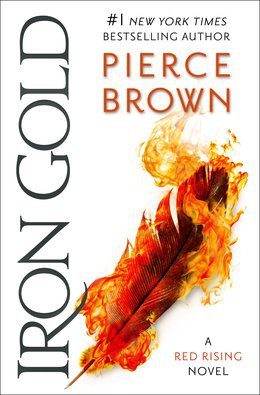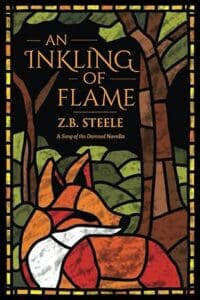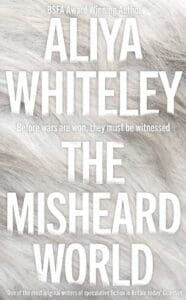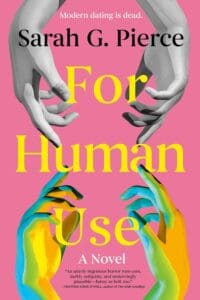Rating: 9/10
Synopsis
hey call him father, liberator, warlord, Reaper. But he feels a boy as he falls toward the pale blue planet, his armor red, his army vast, his heart heavy. It is the tenth year of war and the thirty-second of his life.
A decade ago, Darrow was the hero of the revolution he believed would break the chains of the Society. But the Rising has shattered everything: Instead of peace and freedom, it has brought endless war. Now he must risk everything he has fought for on one last desperate mission. Darrow still believes he can save everyone, but can he save himself?
And throughout the worlds, other destinies entwine with Darrow’s to change his fate forever:
A young Red girl flees tragedy in her refugee camp and achieves for herself a new life she could never have imagined.
An ex-soldier broken by grief is forced to steal the most valuable thing in the galaxy—or pay with his life.
And Lysander au Lune, the heir in exile to the sovereign, wanders the stars with his mentor, Cassius, haunted by the loss of the world that Darrow transformed, and dreaming of what will rise from its ashes.
Review
It’s a strange feeling coming back to your favourite book series ever and trying to find the proper words to review it – without going down the I love this so much it hurts existing fanboying mentality I have over the Red Rising Saga. Disclaimer: I first read Red Rising (or at least, first started it) about three years ago and in terms of the overall series, I fell in love immediately. Though, I’ve never reread it. That paired with the fact I’ve only now just come to love audiobooks, I thought it would be time to come back to this series. That and I’ve never reviewed them before. So, rather than coming to this fresh like most of my other reviews, I’m coming back to this series with a bundle of existing feelings but I’ll try not to let that get in the way of this review series. It’ll be a combination of what I thought initially and what I feel now melded into one – while also remaining spoiler free. I’ve been going through a terrible reading block, so the continuation of this reread was just the thing to solve this.
Iron Gold is the ragged, old, tired of war successor to the initial trilogy; it’s a continuation of the hard-won battle. But a battle in a war that has by no means been won. The Republic has been carved out of the ashes of the plutocracy, headed by Octavia au Lune, that was smashed and burnt in the wake of the Rising. This book is every bit as fed-up of fighting, but forced to carry-on as you’d expect from Darrow, who has been through so much, yet exciting, and as dangerous as ever as we follow new POVs.
My favourite thing about the Red Rising Saga as a whole, which becomes most apparent in the break between Morning Star and Iron Gold, is the evolution of Darrow’s voice. While he remains the same character, very much the Reaper who broke the chains, every battle, victory, loss (big or small) has tarnished his worldview. It has made him tired, sick a battle where the Society still looms, waiting to take back what is there. Or what they feel like they deserve. In the way he speaks, the way he thinks, the actions he takes, it is apparent that a lot has changed since Red Rising. If you read a passage from each, you’ll know it’s the same character, but you’ll note the disparity in the way they hold themselves, in each word. It is a good writer that notes these changes, it’s a great writer that makes them real, that steeps it all in real character-history. It is with a heavy heart he continues to be the Republic’s champion.
The plot sees the Ash Lord, the Arch Imperator of the Society, still at large. He still wields the Sword Armada and there’s been a long, drawn out fight between them and the society; he has been pushed back to Venus because of an Iron Rain that cost Darrow heavily in allied forces, the Obsidians – led by Sethi – took a lot of those loses, and the cracks have started to show. Darrow wants to push forward, to take the opportunity his work has given them. But with the republic tied up in politics, a new democracy, it isn’t as easy as it was before. With votes against him, his legacy stained with the name ‘war monger,’ Darrow must do what he thinks is right. Wrapped up in this are new POVs; a freelancer named Ephraim ti Horn; a red named Lyria of Lagalos; Lysander au Lune, who is accompanied by his mentor, Cassius au Bellona, and all this embroiled in a plot from the Core, to discover who really destroyed their space dock, a sinister plot to split up Darrow’s family, and the machinations of a Gold Society that won’t let go. It is a book that dares to turn its back on its hero, a book that takes darker turns than even the Morning Star does, and one that I think asks questions of its characters. Of whether their actions are right, or how far they would go to do what they think is right. I love this book as an evolution of the initial three books; when I first read it, I wasn’t as impressed, but standing back and reading them from the point of view of the entire series, where I know what will and has happened, I’m more and more impressed by the scope of what’s really discussed here.
I like that we get to go back to Mars, and to the reds that were so in favour with the Golds, the Gammas, and see Lyria’s story. A story that tells us that not all liberation is wanted or is even beneficial to those who are liberated; there’s a continued struggle, and those doing the ‘good’ don’t quite realise that it doesn’t happen in a vacuum. That you can’t just ‘free’ someone and expect those freed to know what to do with it, or to even do good. It displays that society does a good job at restructuring who sits at the top, that there are people waiting to take advantage of this at every turn. Her POV mirrors Darrow’s in a way and is also opposite to it because she is a red who was liberated in Darrow’s rising, one of those that he was meant to help, yet she is in a worse position. I just love the way that this could have been lost, but Brown does a good job at digging deep, chewing on the crud, and showing humanity for what it is. Whereas Ephraim’s POV tells us how some people don’t get over war, nor do they do good with the skills they’ve gained from it, and Lysander … well I feel like that’s an exploration of nature versus nurture, and perhaps how one cannot ever escape the nature of who they are … but that’s just my interpretation.
Overall, I’m glad this book was written the way it was and I’m glad the series continued. It could easily have been about Darrow, but Brown was that bit more ambitious. If you get over the fact that the first part was about Darrow and it’s now much bigger than just him, there’s real merit in the exploration that’s been done here.
Hail Reaper!
Please check out my other reviews in this series: Red Rising, Golden Son, Morning Star, and Dark Age.





[…] Please check out my other reviews in this series: Red Rising, Golden Son, Morning Star, and Iron Gold. […]